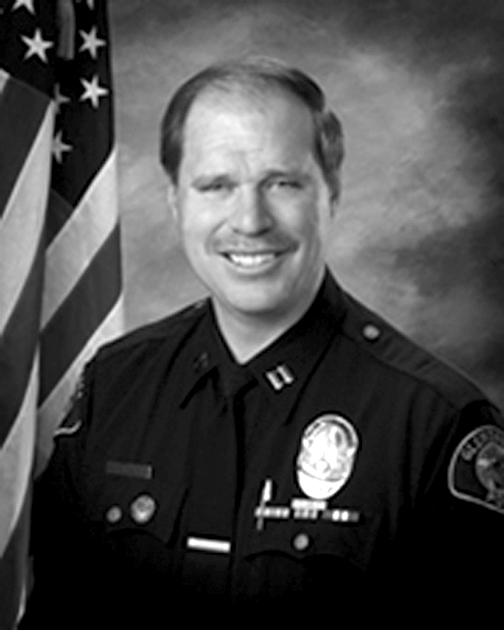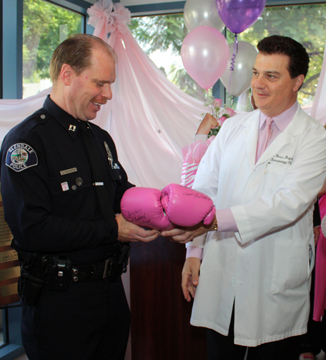
By Mary O’KEEFE
As in every new year, law enforcement must deal with new laws that go into effect. This year a primary focus is on the legalization of the recreational use of marijuana, and how to deal with those driving under the influence.
“In reality we have faced this [issue] for a while,” said Interim GPD Chief Carl Povilaitis.
Just because recreational marijuana use is legal now does not mean that people haven’t been driving high in the past. Povilaitis has been with GPD since 1991 and worked patrol for many years. He said officers have been seeing more Driving Under the Influence (DUI) issues regarding marijuana, and combinations of marijuana and alcohol.
An intoxication level regarding marijuana in a person’s system has not yet been set, like there is for BAC (blood alcohol level). A BAC of .08% or more in California determines that a person is driving under the influence. Povilaitis said GPD has been trained for years through California Office of Traffic Safety and National Highway Traffic Safety Administration (NHTSA) to recognize the signs of an impaired driver.
In August of last year, GPD hosted the Drug Recognition Evaluator program that trained law enforcement representatives from throughout the country. Although it will be difficult to deal with the new marijuana law as it plays out over the years in California, Povilaitis said he is confident GPD will be ready.

“This will be a challenge, but [GPD] has positioned itself well and has [been well] trained,” he said.
In fact, Glendale helped in the creation of the NHTSA training program.
Povilaitis said additional issues facing law enforcement are something it has been dealing with for a while, as required by AB 109, Prop 47 and Prop 57. In 2011, Gov. Jerry Brown signed into law AB 109, Realignment Legislation. It was legislation that shifted responsibility for specific “populations of offenders from the state to the counties,” according to the LA County Probation Dept. Prop 57 was approved by voters in 2016. The proposal included a change in rehabilitation. It placed rehabilitation of those arrested for drugs in the hands of arrestees. Prior to the passage of the proposition, many were given court appointed rehabilitation. Prop 47 was passed by California voters in 2014. It changed certain drug possession felonies to misdemenors.
Adapting to these changes in California laws has been challenging for law enforcement across the state, especially when dealing with repeat offenders.
Povilaitis said the Glendale City Council has been very supportive of the GPD.
“We are fortunate to have a [good] relationship between police, the City Council and the community,” he added.
He said that as GPD moves forward it will continue to build on those relationships and to work with the community. Povilaitis said that community connection is important.
“That is what makes Glendale one of the safest cities [in the nation],” he said. “We really do mean it when we say, ‘See something, say something.’”
He reminded community members to call GPD if they see something suspicious.
“Call if you see anything out of place in your neighborhood,” he said.
There are stories of people seeing something but not wanting to bother the police, or second-guessing their initial concerns.
“What’s the harm in ‘See something, say something’?” he asked.
He said it is better to call and have police check out a situation and discover it is innocent than to not call and have neighbors come home to find they have had their home ransacked. He added the community’s relationship with the police is important and praised members of GPD for working hard to keep the streets safe.
“They are really [always] out there in the community and are being proactive,” he said.
Locking vehicle doors and making certain that nothing of value is left visible in the car is also important in preventing crimes of opportunity, like vehicle burglaries.
Povilaitis added he is constantly impressed by how well officers know the neighborhoods. He is also impressed by how GPD is improving law enforcement techniques with technology and training. Glendale has its own DNA lab that helps not only GPD process cases faster but also supports outside agencies as well.
Over his career, Povilaitis has worked in several divisions of GPD including as commander of the Traffic Bureau and in the burglary unit. He supervised the GPD Air Support Unit and was appointed deputy chief in September 2013. He took on the role of interim chief of police after Chief Robert Castro’s retirement; Castro’s last day was Dec. 29.
